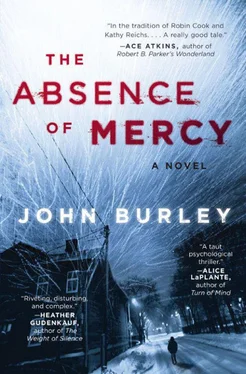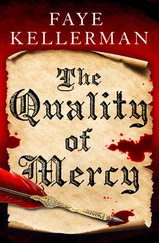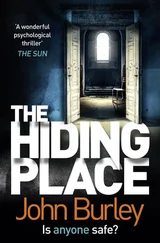“Ernie Samper’s throwing a party at his house,” Thomas said. “A lot of people are going, I think.”
She nodded. A party—just like the last one, she thought, and a shudder rolled through her body. No, she decided. She couldn’t. Even the idea of it made her feel panicky. So many things still did these days. She had a running list in her mind, and she added “going to a party at night with my friends” to it. Just one more thing she couldn’t do—might never be able to do—and this thought made her feel isolated and alone. She was a different person now: someone who hid in her house, looking out at the world instead of participating in it; someone who didn’t answer the phone when she was home alone, who made more excuses than plans; someone who still dreamed of being chased through the forest, of lying there in the mud as the figure’s hand rose above her before plunging downward again and again. There was a piece of her that had been torn away that night, something the surgeons could never replace. She placed a hand over her face, feeling the tears welling up inside her.
Thomas watched her from across the table as she struggled to compose herself.
“It’s just that… it’s just…” She made a fist and brought it down hard on the table, causing the spoons to rattle in their empty bowls. The tears rolled freely down her cheeks now, making her appear raw and defenseless in the yellow glow of the overhead light. “Look at me,” she said. “ I’m a freak. ”
“No, you’re not.”
“ Yes, I am! ” She got up suddenly, collecting their bowls and bringing them to the sink, where she filled them with water. The room became quiet except for the sound of the running tap. A few of the neighborhood children were playing ball on the street outside, and their voices filtered softly through the walls of the house and into the kitchen. After a few moments, she shut off the water and turned to face him. The tears were gone, but her eyes were still red and swollen.
“I’m sorry, Thomas. I need to lie down for a while.”
“Sure,” he said. “No problem.”
“I’ll call you later,” she told him, and she left the kitchen, heading down the hall and into her bedroom. She kicked off her shoes and slipped under the warmth of the sheets.
“You sure you’re okay?” he asked, hesitating in the doorway.
She turned to look at him from where she lay. “No. I’m not.”
He came in, pulled a chair up next to the bed. He looked at her blankly, saying nothing.
Monica looked up at the bedroom ceiling, watching the way the light from the window danced and swayed across the smooth surface above her. “I still dream about it, you know.”
“That night?” he asked, and she nodded.
“I dream about running through the woods, about being chased and finally overtaken. I dream about being left there to die in the darkness.”
He closed his eyes for a moment, as if trying to picture it.
She said nothing, only turned her head to the right so that she could look out at the day through the window across the room.
“In these dreams,” he asked, “do you ever recognize him? Even the smallest detail might help the police to—”
“No,” she said. “Nothing. Just… a shape. A presence.”
He nodded.
“But sometimes when I wake up,” she confided, “and even later, in the light of day…” She looked at him now, needing to make herself understood. “I can’t help but wonder: Am I still back there? Am I still lying there in the dirt, and all of this”—she took in the room briefly with her eyes—“is something else? A dream, maybe. Wishful thinking. Or perhaps…”
“What?” he asked.
She looked down at the shape of her body beneath the sheets, as if assuring herself of its presence. “Perhaps I never made it out of the forest that night. Perhaps I’m really dead. I mean”—her eyes searched his face as she considered this again for a moment—“ how would I know if I wasn’t? ”
Thomas shook his head. “You’re not dead.” He touched her right ear, ran his finger along the line where her own flesh merged neatly with the silicone prosthetic. “You have the scars to prove it.”
“Don’t,” she said, turning her face away from him. “It’s disgusting.”
He withdrew his hand.
“ I’m disgusting.” Her voice was small and defeated.
“No,” he replied. “Not to me.”
She turned her head and studied him for a moment, gauging his sincerity. He looked back at her without flinching.
“You’re sweet,” she told him, reaching up to touch the side of his face with her right hand, feeling the warm, soft contour of his cheek. “Why do you come here to see me?”
He smiled. “Don’t you know?”
She shook her head.
“Well, you don’t know much then.”
“Do you feel sorry for me? Is that why you’re so good to me?”
“No.” He withdrew her left hand from beneath the covers, cupping it gently in his palm. His thumb moved lightly across the two digits that were only partially her own. “Plenty of people in this town feel sorry for you.” He made a face, crinkling the bridge of his nose. “You must be sick of it.”
“I am,” she replied. “I… I just want to feel normal.”
“Why would you ever want to be normal? You’re better than that.” He closed his eyes for a moment, and when he opened them again they somehow seemed to Monica deeper and greener than before. “No,” he said. “I’ve never felt sorry for you.”
She sat up quickly then and kissed him, before she could lose her nerve. His body stiffened briefly in response, then relaxed. She could feel against her chest the measured rhythm of his heart, as if it were her own—and when he kissed her in return it was at once safe and thrilling and everything she had hoped it would be.
“Could you lie here with me?” she asked after they had kissed for a while, and he did, wrapping her in his arms like a child. And sometime later in the silence that followed, as the light filtering through the window tracked its way across the wall with the afternoon’s passing, it occurred to Monica that she was still capable of opening her heart if she wanted to, that her thirst for life might someday be stronger than the sum of her fears, and that there were unexpected events on the horizon—a future far removed from the pain and suffering she had endured over these many months. She did not feel whole again, and maybe she never would. But it was a start—a beginning—and starting, she realized, was the hardest part.
“What d’ya think, Dr. S?” Nat called over from the next room. He was holding a human liver in his hands. It was gray and cirrhotic, shrunken from its normal size by a lifetime of heavy drinking. “How much ya figure it weighs?”
Ben looked through the doorway of his office. “I’d guess 875 grams.”
Nat shook his head. “Too high, Dr. S. This thing is pickled. I’m goin’ with 680.”
“Well, weigh it and find out,” Ben advised, turning his attention back to the papers in front of him.
“Let’s place a wager on it,” Nat suggested. “An extra two days of paid vacation for me this year.”
“You didn’t use all your vacation time last year,” Ben reminded him.
“That’s why I need an extra two days this year,” Nat said. “I thought that shit carried over.”
“Nope. Use it or lose it,” Ben told him. “You’ve got enough perks and benefits already.”
“ What perks and benefits?” Nat wanted to know, the liver in his hands temporarily forgotten.
Ben slapped his pencil down on the desk, exasperated. Trying to get paperwork done with Nat in the other room was like trying to enjoy a romantic, candlelit dinner with a three-year-old at the table. “Are you gonna weigh that thing, or not?”
Читать дальше
Конец ознакомительного отрывка
Купить книгу












